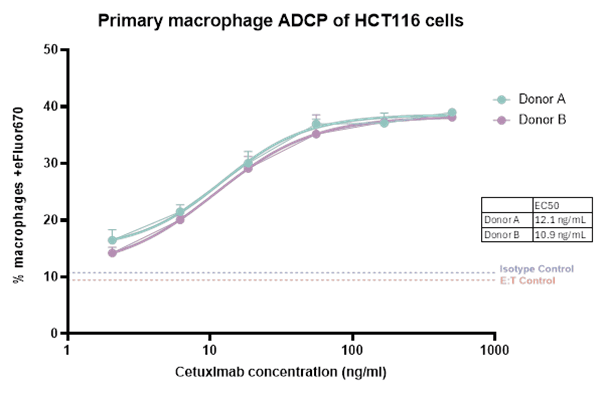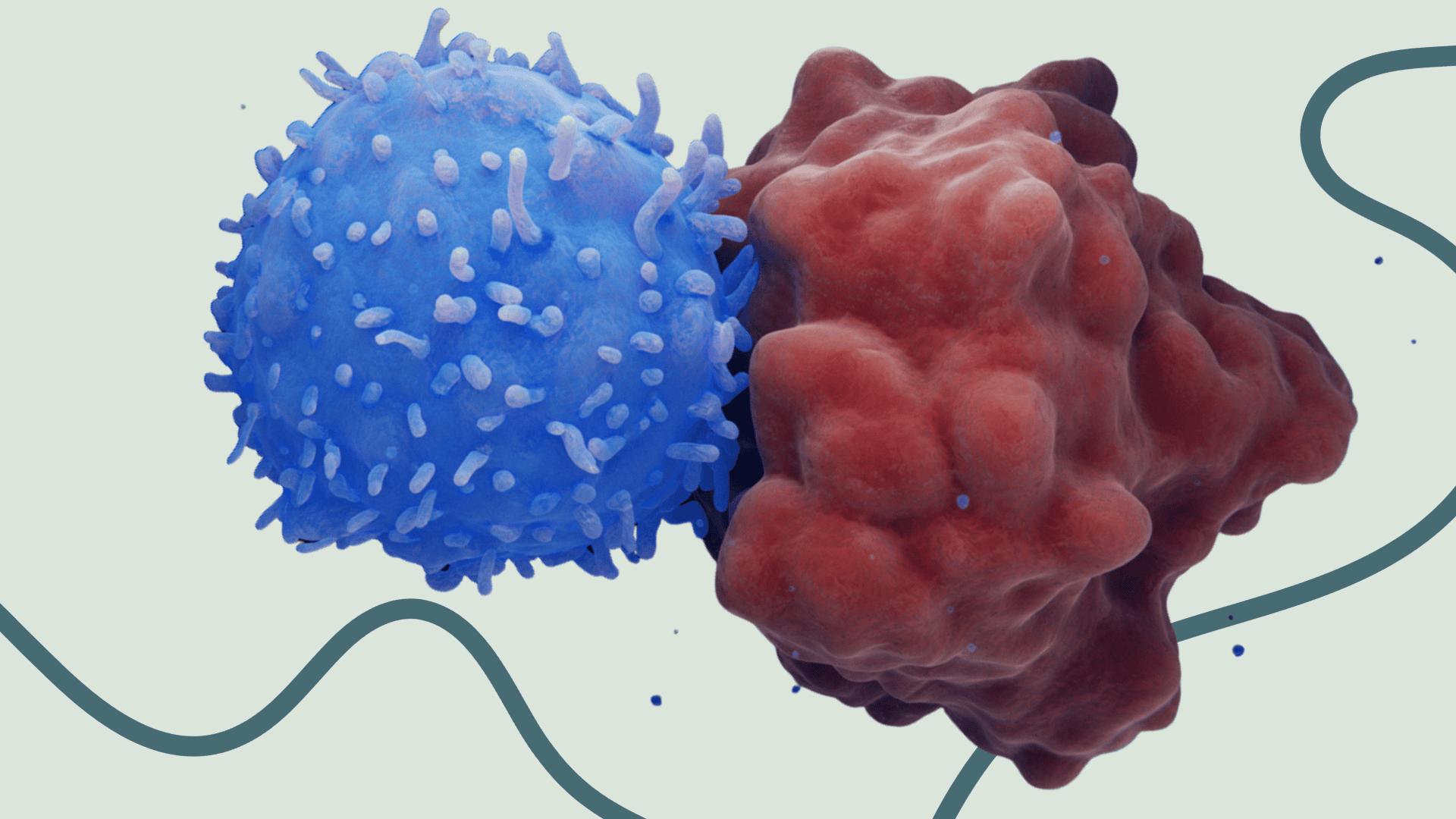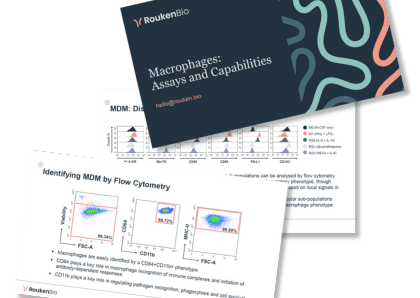Macrophages in Immunity and Immuno-Oncology: Unlocking Therapeutic Potential Through In Vitro Assays
Macrophages play a pivotal role in immunity and immuno-oncology, influencing disease outcomes through diverse functions such as inflammation regulation, tissue homeostasis, and immune modulation. Advances in in vitro assays enable detailed exploration of macrophage biology for therapeutic development, particularly in cancer treatment.

|
September 29, 2025
|
5 min read
In the evolving landscape of immunology and immuno-oncology, macrophages have emerged as central players in shaping immune responses and influencing disease outcomes. These versatile cells are no longer viewed as mere scavengers of debris but as dynamic regulators of inflammation, tissue homeostasis, and immune modulation.
Macrophages are found in virtually all tissues, where they perform essential roles in immune surveillance and repair. While many macrophages arise from circulating monocytes during inflammation, a significant proportion of tissue-resident macrophages originate from embryonic precursors and maintain themselves through local proliferation. This dual origin and plasticity in activity contributes to their remarkable heterogeneity, with distinct populations exhibiting unique transcriptional profiles, surface markers, and functional behaviours.
Understanding this diversity is critical in immuno-oncology, where tumour-associated macrophages (TAMs) can either support anti-tumour immunity or promote tumour progression through immunosuppressive mechanisms. The ability to distinguish and modulate these subsets is key to developing effective therapies.
At RoukenBio, we harness advanced in vitro models to explore macrophage biology and accelerate the development of targeted therapies, especially those that leverage macrophage functions such as antibody-dependent cellular phagocytosis (ADCP) and macrophage-mediated T cell activation.
Macrophages in Immuno-Oncology: Friends or Foes?
In the tumour microenvironment (TME), macrophages often accumulate in large numbers and adopt phenotypes that suppress cytotoxic T cell activity, promote angiogenesis, and facilitate metastasis. These TAMs are typically skewed toward an M2-like, anti-inflammatory state, although recent research has revealed a spectrum of activation states beyond the classical M1/M2 paradigm.
Targeting TAMs has become a promising strategy in immuno-oncology. Approaches include reprogramming macrophages toward a pro-inflammatory phenotype, blocking recruitment signals, or enhancing their ability to phagocytose tumour cells. To evaluate these strategies, robust in vitro assays are essential.
Antibody-Dependent Phagocytosis (ADCP): A Functional Readout of Therapeutic Efficacy
ADCP is a key mechanism by which macrophages contribute to immune defence, recognising antibody-coated targets via Fc receptors, leading to target engulfment and degradation. ADCP is particularly relevant in cancer therapy where monoclonal antibodies are designed to opsonize tumour cells and direct their clearance by immune effector cells.

Figure 1: Cetuximab driven ADCP a colorectal cancer cell line by primary human macrophages: Monocyte derived macrophages from two donors were incubated with efluor670 labelled HCT116 cells in the presence of increasing concentrations of Cetuximab. The extent of ADCP was determined by flow cytometry as percentage of macrophages positive for efluor670+.
At RoukenBio we offer high throughput ADCP assays using primary human macrophages to assess the phagocytic potential of therapeutic antibodies. Our assays provide quantitative and qualitative insights into Fc receptor engagement, downstream signalling and ultimately, target cell internalisation.
Beyond immuno-oncology, ADCP assays inform research in other areas, like autoimmune diseases, infectious diseases, and inflammatory disorders, highlighting their broad applicability in biomedical research.
Macrophage-T cell Interactions: Shaping Adaptive Immunity
Through antigen presentation, cytokine secretion, and co-stimulatory signalling, macrophages can influence T cells activation, differentiation and effector functions. This crosstalk is particularly important in immuno-oncology where effective anti-tumour responses depend on a coordinated activity between innate and adaptive immune cells.
By combining autologous or allogeneic immune cells in defined conditions, we can model and assess macrophage modulation of T cell proliferation, cytokine production and cytotoxicity. This capacity to stimulate T cell responses is particularly relevant in the context of immuno-oncology, infection, allergy, and autoimmunity, where understanding and modulating immune interactions is key.
Leveraging macrophage-T cell co-culture assays allows researchers to model antigen presentation and T cell activation, offering a powerful platform to evaluate immunomodulatory therapies and predict clinical immune responses. These co-culture platforms are invaluable for evaluating immunomodulatory agents, checkpoint inhibitors and even cell-based therapies.

Why Macrophages Matter More Than Ever
Recent advances in single-cell technologies and spatial biology have revealed the nuanced roles macrophages play across disease contexts. In cancer, their ability to suppress or support immune responses makes them both a challenge and an opportunity. In autoimmune and infectious diseases, macrophages contribute to pathology and resolution, depending on their activation state.
As we continue to move towards precision immunotherapy, understanding macrophage behaviour is essential. To capitalise on therapeutic modulation of macrophage function, be it through Fc receptor engagement, functional repolarisation, metabolic reprogramming or epigenetic modification, assays providing crucial data guiding drug design and evaluation are essential.
Join our community of curious minds on LinkedIn
🗓️ Stay informed with our monthly scientific newsletter, published on LinkedIn on the last Wednesday of each month.
These editions bring you the latest in drug development breakthroughs, industry trends, and expert insights from the brilliant minds at RoukenBio.
Subscribe today on LinkedInReady to explore detailed macrophage assay data and technical insights?
Empower your drug discovery efforts with cutting-edge in vitro models tailored to answer your questions.
Access the technical slide deck

